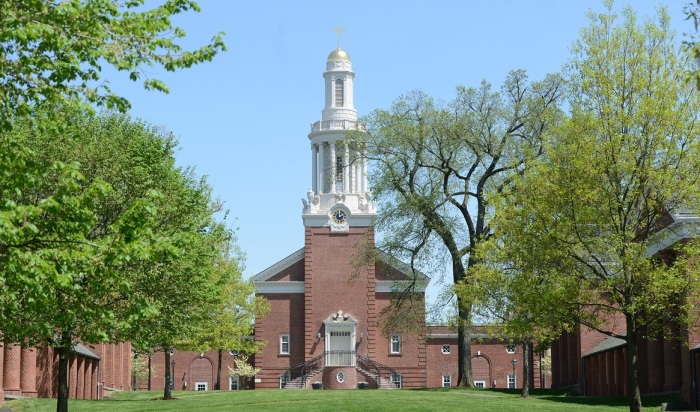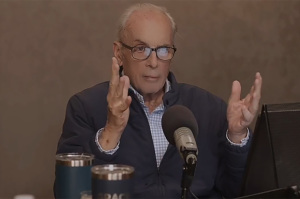Yale Divinity School holds first non-Christian service with 'black ecology,' 'pantheistic mysticism'

Two centuries after its founding, Yale Divinity School marked its first-ever non-Christian service in honor of Earth Day.
Around 80 students gathered on April 22 outside the university’s Marquand Chapel to mark the annual observance with singing and non-denominational prayers, according to The Yale Daily News.
A student organizer told the independent student newspaper it was the first time a non-Christian service was held at the Yale Divinity School in its nearly 200-year history.
Master of divinity student Tasha Brownfield led the event, which she described as “Indigenous- and Black ecology-based with a sprinkle of cosmology and Pantheistic mysticism.”
The event featured an opening speech from Brownfield that included a “land acknowledgment” and a call for those in attendance to “honor and respect the enduring relationships that exist between Native peoples and their land.”
“There aren’t many spaces where people who fall outside a very particular Protestant lens can worship authentically at Yale Divinity School,” Brownfield, who said she is trying to launch and curate "pantheistic mysticism" as a religious practice, told the newspaper.
“So for my colleagues and myself, I decided to make a space where people could worship authentically and include black Theology, Indigenous ecology, some southern charm that separated from the elitism of the institution to something that’s really embodied and grounded within this space.”
Attendees took part in a chalice lighting ceremony under the Unitarian Universalist tradition, followed by a prayer to the Hindu fertility god Prithivi, which Brownfield described as the religion’s personification of Earth.
Another student, Nai Garard, gave a speech on “Black Ecology,” which reportedly spoke to how pushing back against racialized aspects of climate change can be a means toward black liberation, The Daily News reported.
Another 200-year-old theological institution, Harvard Divinity School, held a similar celebration Sunday for Earth Day called “Gathering Light,” which also featured musical and video performances.
Founded in 1822, Yale Divinity School has hosted Earth Day festivities for over a decade, but Sunday marked the first time a non-Christian service was held at the school.
The university’s website says “training for Christian ministry was a main purpose” in founding Yale College in 1701. But it wasn’t until theology students asked to be recognized as a group distinct from the general student body that the divinity school was officially founded.
Today, Yale Divinity School professes an "enduring commitment to foster the knowledge and love of God through scholarly engagement with Christian traditions in a global, multifaith context."
"Participating in the vibrant life of Yale University, the Divinity School is uniquely positioned to train leaders for church and society given its ecumenical and international character, engagement with music and the arts, and commitment to social justice," the divinity school website reads. "Rigorous scholarly inquiry, corporate worship and spiritual formation, and practical engagement in a variety of ministries enable students to develop their knowledge and skills in a community that welcomes and affirms human diversity."
The school hasn't shied away from controversy when it comes to orthodox Christian teaching.
In 2008, Yale reportedly introduced a course called "Christian Theology and Harry Potter," which explored the popular series to examine Christian themes such as sin, evil and resurrection.
Yale Divinity School made headlines in 2016 when a spokesperson urged Christians not to vote for then-Republican presidential nominee Donald Trump but to follow Jesus' command to love him just like He teaches people to "love your enemies."
In a column published in USA Today, Yale Communications Director Tom Krattenmaker said that Jesus' command to "love your enemies" applies even in the American political context.





























